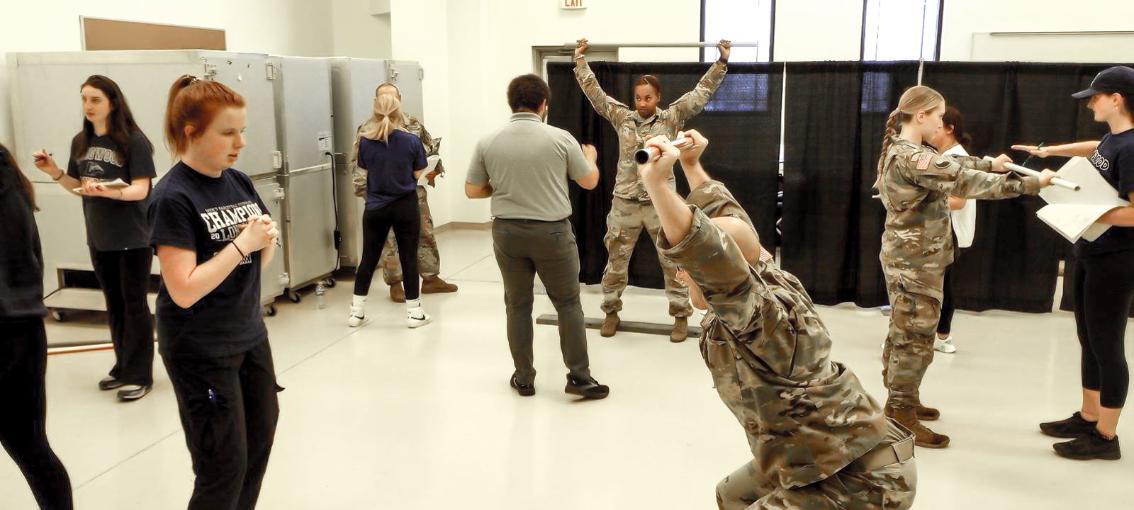

Anyone who has been through boot camp will tell you: being in the armed services comes with a lot of physical demands, whether you are a Navy SEAL or in the National Guard reserves.
But while active duty soldiers have health and fitness built into their daily routines, those in the National Guard only train for a few days each month and don’t have access to the same type of equipment and personnel support—something the National Guard is trying to change by implementing a Holistic Health and Fitness program nationwide.
As part of that effort, this a group of Longwood kinesiology students, led by professor Tena Ewing, are screening hundreds of National Guard soldiers to identify movement dysfunction and muscular imbalances, and refer soldiers to resources where they can address issues to optimize their movement to better meet the physical demands of being a soldier and functioning in the civilian world.
When we had the opportunity to take what students are learning in the classroom and use it to support our soldiers, we jumped at the chance.
Tena Ewing Tweet This
“When we had the opportunity to take what students are learning in the classroom and use it to support our soldiers, we jumped at the chance,” said Ewing. “These soldiers need to be ready to be called up at a moment’s notice, and part of that is being prepared for the physical rigors of active duty. If we can play a small part in making that happen, we are grateful for the opportunity to be involved.”
Holistic Health and Fitness (H2F) is a shift in the way the Army trains, develops, and cares for soldiers. It has five distinct parts: physical, nutritional, mental, spiritual, and sleep readiness.
For two weekends this fall, Longwood kinesiology majors from freshmen to seniors volunteered for dozens of hours to screen National Guard soldiers at Fort Barfoot in nearby Blackstone. They asked soldiers to perform a series of squats in different positions while holding their arms above their heads. The Longwood students then checked for any inconsistencies in their form like excessive forward lean or an overarched back. In conversation afterward, they shared their findings with the soldier and recommended exercises or stretches to help the issue. They also input the data for the National Guard to track.
One of those students, Rachel Towne ’26, a kinesiology major from Warrenton, said one soldier in particular stood out as she talked with him before and after his screening.
“He had severe hip pain from combat injuries he had suffered while on active duty,” said Towne. “He was one of the few soldiers there who had actually seen war, and couldn’t squat without wincing in pain.”
Ewing had encouraged the students to make conversation with the soldiers they were assessing, both to produce better recommendations and to train for building relationships with patients and clients they will see in their careers after graduation.
I have such an enormous amount of respect for people in the military because every one of them is putting themselves in a position where they could sacrifice themselves for their country.
Rachel Towne ’26 Tweet This
“We talked a lot about how active duty took a toll on his physical health,” said Towne. “Seeing the pain on his face when he went to perform a basic squat made me really empathetic to his situation. I have such an enormous amount of respect for people in the military because every one of them is putting themselves in a position where they could sacrifice themselves for their country.”
Students who took part in the screenings were: Rachel Towne, Jiovanni Raymond, Shane Bach, Sam Villa, Carrington Noble, Myah Taylor, Sarah Statelman, Tommy Myer, Lauren Fulford, Nicole Madrigal, Meredith Martin, Emily Williams, Madalyn Cook, Jodi Pool, Mallory Hollifield, Addison Gilmore, Victoria West, Claire Bailey, McKenzie Cearsley, and Joseph Carroll.
